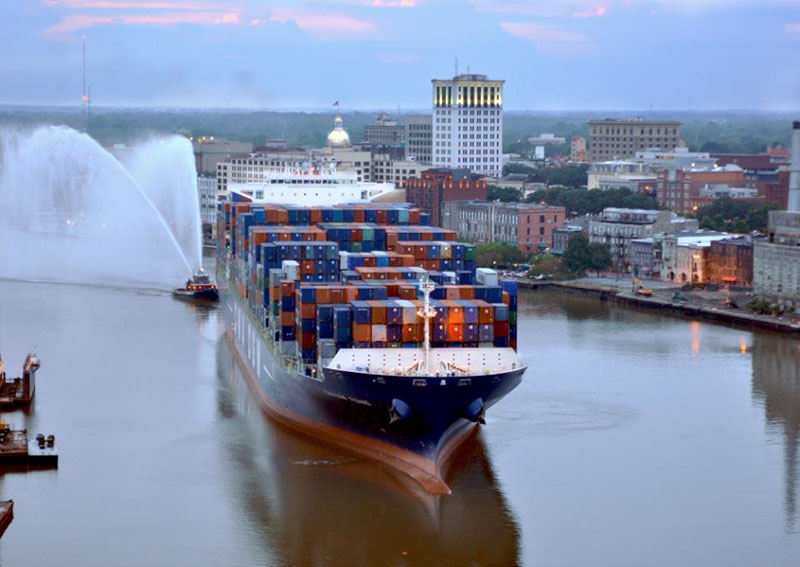It took a pandemic for Congress to finally make a long-sought change to the Harbor Maintenance Trust Fund (HMTF) that would allow the full amount of deposits to the fund to be used to finance dredging of coastal and inland harbors and ports.
The change is tucked inside the expansive $2 trillion emergency aid bill passed by Congress two weeks ago to help the nation respond to the coronavirus outbreak.
Known as the Coronavirus Aid, Relief and Economic Security Act (CARES), the legislation provides an array of assistance, such as loans to airlines and hotels, food aid, cash payments for many Americans and free Covid-19 testing. But the measure also provided an opportunity for lawmakers to push through favored projects that hadn’t yet passed Congress, such as changes to the HMTF.
The provision states that any appropriations from the trust fund for the Corps of Engineers will be exempt from federal budgetary caps up to the amount of revenue received into the trust fund during the previous fiscal year — an estimated $1.8 billion — and in future years. It would not apply to a backlog of $9.3 billion that has already been collected and sits unspent in the fund.
Since 1990, the HMTF has been subject to discretionary funding caps which allowed only a portion of the revenue collected from an “ad valorem” tax on internal cargo transported between two coastal ports or on cargo arriving at U.S. ports to be spent on dredging harbor and ports to their authorized depths and widths.
Implementation of the new provision that removes the cap will be delayed until either Jan. 1, 2021, or the date of enactment of the next Water Resources Development Act (WRDA), whichever comes first. Congress is expected to act on WRDA by the end of the year.
The extra time will allow Congress to consider and include in WRDA a structured funding distribution plan crafted by the American Association of Port Authorities that would ensure that a guaranteed share of annual HMTF distributions go to donor ports, energy transfer ports, emerging harbors that handle less than one million tons of cargo, and to the Great Lakes navigation system, said Aaron Ellis, AAPA spokesman.
“The CARES Act language will help enable the Corps to address harbor maintenance needs resulting in safer and more efficient cargo movement that will benefit the nation’s consumers, retailers, manufacturers and farmers,” Ellis said in an email. “AAPA’s years of effort to get the full annual HMTF tax revenues to be appropriated for their intended purpose of federal navigation channel maintenance has been finally realized.”
This is a big win for the maritime industry and its allies in Congress, namely Sen. Richard Shelby, R-Ala., chairman of the Senate Appropriations Committee and whose state includes the Port of Mobile, and Rep. Peter DeFazio, D-Oregon, chair of the House Transportation and Infrastructure Committee, who have tried unsuccessfully for over a decade to win approval of the change.
Including it in the stimulus bill made sense, DeFazio said, as dredging harbors and the free flow of commerce through U.S. ports is essential to the country’s post-coronavirus pandemic recovery.
“For over twenty years, I’ve heard from countless fishermen, shippers, and vessel, tug, and barge operators about the importance of safe and predictable access to our ports and harbors which is critical to protecting our fishermen and maritime jobs and to keeping our local, regional, and national economy moving,” DeFazio said in a statement.
“Requiring that fees already collected by the federal government are used for their intended purpose — to ensure our ports and harbors are fully operational — will help ensure our ports and harbors are fully maintained and that our nation can quickly recover once this outbreak is contained and over.”
The inland waterways benefit from a similar cost-sharing fund, the Inland Waterways Trust Fund, that is financed equally by a fuel tax paid by the barge industry and the federal treasury. The money is spent to improve the nation’s inland waterways infrastructure.




